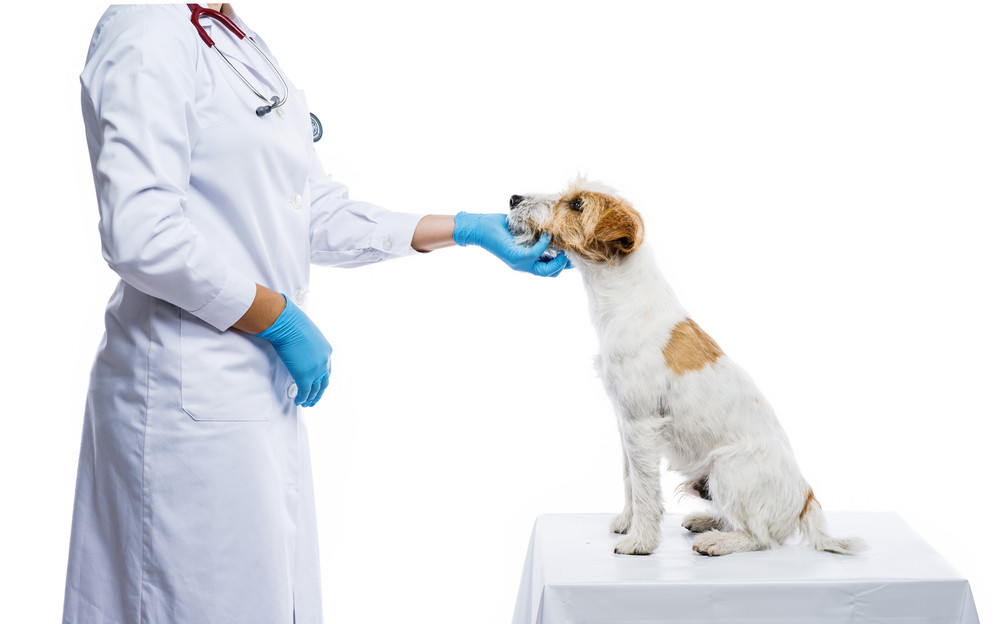
4 Serious Diseases Pet Owners Should Know About

 Most of us would do anything in our power to keep our pets healthy and safe. But because our canine, feline, and equine friends cannot communicate with us in our own language, it can sometimes be difficult to discern when a pet is in need of medical attention. That’s why it’s so important for pet owners to be diligent in preventative care and veterinary diagnostics testing. It’s also imperative that pet owners be on the lookout for visual clues or changes in behavior that might indicate a serious illness. To help you in this effort, here are four serious illnesses that all pet owners should be aware of:
Most of us would do anything in our power to keep our pets healthy and safe. But because our canine, feline, and equine friends cannot communicate with us in our own language, it can sometimes be difficult to discern when a pet is in need of medical attention. That’s why it’s so important for pet owners to be diligent in preventative care and veterinary diagnostics testing. It’s also imperative that pet owners be on the lookout for visual clues or changes in behavior that might indicate a serious illness. To help you in this effort, here are four serious illnesses that all pet owners should be aware of:
Kidney disease
Older cats often develop kidney disease, but it can be found in both dogs and cats of any age. Sometimes, the condition may be hereditary, but it can also be brought on by viral infections or other factors. Symptoms of kidney disease in cats may include loss of appetite, excessive thirst, listlessness, vomiting, weight loss, a bloated abdomen, or bloody urine. While cats being treated for kidney disease may live for several years in relative health, dogs often deteriorate more quickly. A veterinary laboratory will be able to diagnose kidney disease quickly so that treatment can be administered.
Equine infectious anemia virus
Also known as “swamp fever,” equine infectious anemia virus is a highly contagious horse disease originally transmitted by horseflies. It can also spread through the use of contaminated syringes or blood. Infected horses may exhibit signs of anemia, weight loss, fever, lethargy, a swollen spleen, belly, and legs, depression, and reduced athletic performance. The acute form of EIAV is usually fatal; if the horse survives, the condition is considered to be chronic. The majority of horses infected with EIAV are inapparent carriers who show no signs, which makes it very difficult to detect. While they are unlikely to spread the disease — only one horsefly out of 6 million is likely to transmit EIAV from such a horse — all horses that test positive for the equine infectious anemia virus antibody must be quarantined for life, as there is no cure. This illustrates why it’s so important for owners to conduct equine infectious anemia virus antibody testing. An equine infectious anemia virus antibody test is the only definitive way to conclude whether your horse(s) are at risk.
Lyme disease
While lyme disease is one of the most common tick-borne illnesses, only a very small percentage of infected dogs show any signs of the disease. Although kidney disease may result from the onset of Lyme, it’s certainly not the only risk. One of the most common symptoms is joint inflammation, which leads to recurrent lameness. Dogs may also exhibit breathing problems, touch sensitivity, fever, loss of appetite, depression, swollen lymph nodes, and in rare cases, heart abnormalities or other nervous system complications. Because one of the most obvious symptoms can be mistaken for just arthritis — especially in older dogs — it’s important to keep a sharp eye and utilize veterinary laboratory services to diagnose or rule out the possibility of Lyme disease. And, of course, flea and tick preventative medicines are always recommended.
Heartworm
Contrary to popular belief, both dogs and cats can contract heartworm, which is spread by mosquitoes. Sadly, there is no cure for feline heartworm, but if caught early enough, the disease can be treated in dogs. Pet owners may find it difficult to recognize signs of this disease, as symptoms include coughing, listlessness, difficulty breathing, and weight loss, and many dogs never show any signs at all. However, if it’s not treated quickly, the disease can cause congestive heart failure and death. Therefore, it’s vital to use heartworm preventative methods and get annual screenings. If you suspect your dog may be exhibiting signs of heartworm, be sure to have a heartworm antigen test performed so you can rule out the condition or start treatment immediately.
To keep your pets healthy, you need to have access to veterinary clinical diagnostics. Our test kits can determine whether your horse might have the equine infectious anemia virus antibody, whether your dog might have heartworm, or whether pet food is safe for consumption. To find out more, please contact us today.


